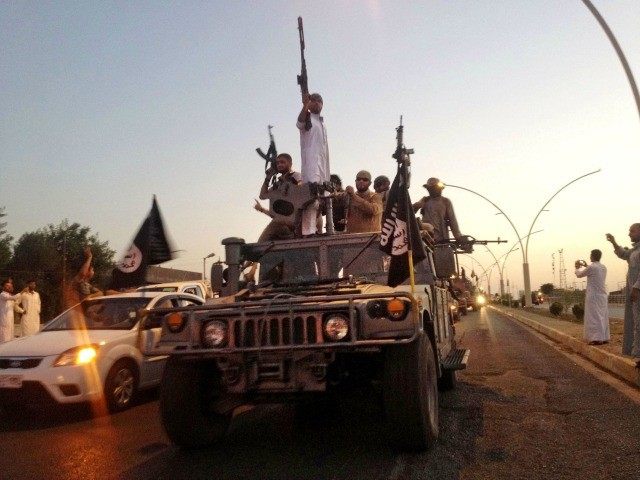The International Committee of the Red Cross (ICRC) claims water is being used as a weapon in the Middle East. The report stated the numerous wars and “aging delivery systems” cut down on clean water in the region.
“Using access to water as a tactic or weapon during conflict, or targeting water or energy facilities, not only violates the laws of armed conflict, it has very harmful effects on the lives of people whose health is already extremely vulnerable,” stated Robert Mardini, the ICRC’s head of operations for the Middle East.
The Islamic State (ISIS/ISIL) uses water as a weapon against Christians and Kurds in regions they do not control. In July, the terrorist group targeted the city of Qaraqosh, which receives water from the Tigris River. ISIS exploited this link and cut off the water:
As Bloomberg’s Jason Motlagh explains, the tactic has worked, as it is forcing Kurdish administrators in the town to import the water at extremely high prices and begin to dig wells to help better distribute the water. The wells require weeks and months of work to complete, however, and water has to travel 15 miles from other Kurdish controlled areas to reach Qaraqosh. Residents are now paying $10 a day for emergency water tanks, a fortune to many who live with limited means in the city.
Iraq’s water supply comes mainly from two rivers– the Tigris and Euphrates, between which the ancient civilization of Mesopotamia arose. With ISIS controlling the Tigris water supply, any influence on water from the Euphrates could be pivotal to eradicating Christians and Shi’ites from Iraq. Shi’ites in southern Iraq are in particular danger as, without water from either river being irrigated down, they have no other source of water immediately available.
“Such attacks are particularly harmful because water, sanitation, electrical and energy supplies are intimately interconnected,” said Mardini. “An attack on an electrical station, for example, could have a very serious impact on sewage treatment, water availability, the quality of water, or the functioning of health facilities. The humanitarian community does not have the capacity to meet the populations’ needs by continually substituting services or by offering quick-fixes.”
In October, ISIS continued to punish those in areas that would not bend to the terrorist group. They placed themselves near the Mosul and Haditha dams so the American airstrikes would hit close to the dams. The dams water “the country’s vast wheat fields and provide Iraqis with electricity.” If ISIS controlled the dams, then they would be able to control the country’s livelihood.
“ISIS has established a blueprint that can be used by other entities to take advantage of drought and water scarcity,” a researcher wrote in a report for the Department of Homeland Security. “For all the conversation about ISIS taking control of oil refineries, one could argue that their control of water is even more significant, as it deprives the population of a resource necessary for daily sustenance and gives the militant group significant leverage over local governments and populations.”
ISIS and the Syrian civil war have forcibly displaced millions in Syria and Iraq. They enter Jordan or Lebanon, which causes problems on their already weak water systems. In 2013, Time investigated the influx of Syrian refugees into Jordan, which “is one of the most water-stressed countries in the world.” On Tuesday, Russia agreed to help Jordan build the country’s first nuclear power plant. Jordan hopes nuclear power will “meet its growing needs and to fire desalination plants to overcome its crippling water shortage.”
The Red Cross delivers clean water to areas with help from other aid organizations. In 2014 alone, the Red Cross made sure that “9.5 million people received water through emergency repairs of rehabilitation of supply systems.” There is more work to do, but it can be fixed.
“There are reasons to be hopeful,” said Mardini. “This is largely a problem caused by humans and it can be solved by humans. But it depends on the support and concerted efforts of everyone, from the international community to local communities. The problem and the solutions belong to everyone, and we must make sure the water flows for everyone.”

COMMENTS
Please let us know if you're having issues with commenting.